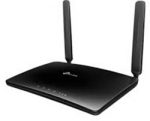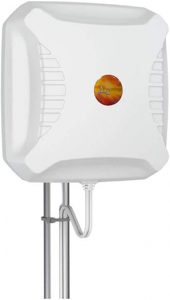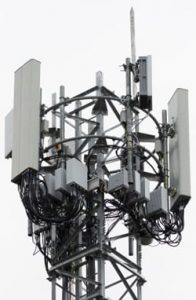


No site wifi or prefer to use your own mobile internet in your caravan or holiday home?
Further to our previous article on site wifi, where there is no built-in site wifi on their site or they are staying at remote locations, many users prefer to use their own mobile broadband within their caravan or holiday home.
Although when using mobile data in some areas, it can sometimes slow down if it is in a busy areas with many people using the network and the mobile intrastructure is not that great the increasing rollout of 5g coverage is now making it a more attractive option than previous.
On top of that, the much faster speeds of 4g and 5g can often exceed the speeds of what some sites can provide.
How fast is mobile internet?
The main types of coverage for data are 3g, 4g and 5g.
- 3g – Was introduced around 20 years ago and can provide speeds of up to 7.2mbps.
- 4g – Was introduced around 10 years ago and can theoretically provide speeds of up to 150mbps and speeds of over 75mbps are commonly reported.
- 5g – Introduced around 3 years ago, 5g is still being rolled out across the country and will continue to be over the next few years. Some networks such as EE already have good coverage, however all networks are constantly improving their coverage. It is expected to see speeds of up to 1gbps (1000mbps) potentially possible.
The above speeds are all theoretical maximum speeds though, as they are all affected by various factors such as your location (i.e. how far from a mast your are), the local area (i.e. hills, buildings etc), the weather (i.e. heavy rain, snow etc), your device model (i.e. some models of routers or phones pick up and are faster than others) and also the amount of traffic on the local network (i.e. extra busy areas with a lower capacity mobile infrastructure and everyone using it at the same time can low things down).
For example, in a real world environment a 5g setup is far more likely to get a speed of 100-200mbps on average however that is still far better than many other broadband speeds from landlines and other wifi services in a lot of areas.
What can affect the speed of mobile internet at my holiday home?
A starting point is the coverage of the various networks where your holiday home is situated. Some networks can provide excellent coverage whereas others provide very little in that area so the most important thing to start with is to check the coverage of each of the networks in your area and choose the best for 4g (or 5g if required). This can be done online at the websites of any of the major network providers.
Another very big factor is the amount of people in the local area using the mobile network at the same time and the capacity of the mobile network infrastructure. For example, a very busy holiday resort with thousands of users all using the same services via the mobile network in an area with a lower capacity infrastructure will run much much slower in peak season than it will in the winter when there are less people around.
Although there are other factors such as weather and the surrounding area (i.e. tress, buiildings etc) that can affect your speed which little can be done about these, one factor that can affect the speed are the walls of your holiday home. This is explained in our earlier blog post at https://www.gavardos.co.uk/improving-your-caravan-wifi/ where the walls of the holiday home can degrade the quality of the mobile signal coming into the holiday home and this can often be improved by the use of an external antenna for mobile internet in the same way an external antenna can be used to connect to regular site wifi.
The best way to see if the walls of your holiday home are degrading your mobile internet signal is to test the speed of the internet on your device inside the holiday home and then go and do the same stood outside. This is best done at a time when the mobile network is not too busy with other users. If there is a noticeable different then you may benefit from an external antenna installed on your holiday home.
Am I better with 4g or 5g?
Without a doubt, 5g is definately quicker than 4g and is the future however at the time of writing it’s coverage is limited to areas that it has been rolled out to by providers so again it is worth checking that the area you are in is covered by 5g. Otherwise, 4g on the whole has very good coverage throughout the country and is the alternative. However, 5g coverage is constantly increasing and in years to come will be more widely available.
Is it expensive?
In most cases now that 5g is becoming more established, many network providers now offer 5g as part of their plans for little or no extra cost so the monthly running cost of it is hardly noticeable.
However, in some cases the equipment can be a higher initial cost. Aftermarket routers are usually more expensive than those sold by network providers however the quality and the capabilities are far better and they usually have the option to be connected to an external antenna to gain performance. To use 5g requires a 5g capable router. The cost of an aftermarket 5g router is also higher than a 4g only one, however a 5g router can be used for 4g so although the cost is higher a 5g could be seen as a better investment for the future if you are planning to use 5g at some point. If an external antenna is to be used with it for 5g, then the antenna would have to be 5g capable too however the cost of these are very similar to 4g antennas too and again are capable of receiving 4g.
So what is best for me?
Whether you wish to use 4g or 5g, the most important thing to check is existing coverage for both signals to see if it is available in your area. It is also best to work out whichever provider would give you the best speed and take into account the local environment, mobile infrastructure etc along with any real world experiences from other users close by. It is then worth seeing if your signal could be improved by use of an external antenna.
A 4g connection is the absolute minimum these days for a reasonable mobile internet connection, 5g is preferred if possible due to it’s potential much higher speeds and futureproofing. If 5g is available in your area and within the budget then we would recommend that, otherwise we recommend going for the best 4g connection you can and trying to maximise it’s potential. If you would like any advice or details on our installation services then please do not hestitate to contact us.

